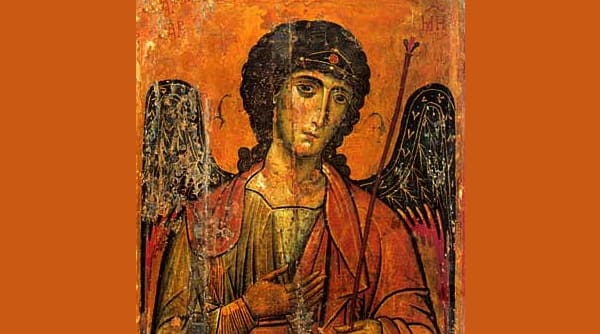Dear Father John, you used the phrase “spiritualized capital sins” in your post on consolation and desolation. I have never heard this idea before. What are spiritualized capital sins and how do they “attempt” to re-conquer the soul as we mature?
 We have to remember that here on earth we are members of the Church militant. We are in the midst of a battle. As we grow spiritually, the enemies of our souls (the devil and his demons) don’t sit idly by. Did you know that the Church’s most notable heresiarchs (people who start heresies) were almost all priests in their forties? Pelagius, Arius, Apollinaris, Nestorius… These were all men of God, passionately dedicated to the Church and to seeking deeper intimacy with Christ, advanced in theological knowledge and in the spiritual life. Who would have guessed that they would become instruments of ecclesial devastation and spiritual shipwreck? And yet, they did. We can never forget this: as we grow spiritually, the battle doesn’t go away.
We have to remember that here on earth we are members of the Church militant. We are in the midst of a battle. As we grow spiritually, the enemies of our souls (the devil and his demons) don’t sit idly by. Did you know that the Church’s most notable heresiarchs (people who start heresies) were almost all priests in their forties? Pelagius, Arius, Apollinaris, Nestorius… These were all men of God, passionately dedicated to the Church and to seeking deeper intimacy with Christ, advanced in theological knowledge and in the spiritual life. Who would have guessed that they would become instruments of ecclesial devastation and spiritual shipwreck? And yet, they did. We can never forget this: as we grow spiritually, the battle doesn’t go away.
But our enemies are smart. They know that temptation has to be customized to the situation of the person being tempted. They can’t invent new sins (the seven capital sins are always the primary categories for sinful behavior), but they can disguise them in new ways. So, for someone who is well along the road towards spiritual maturity, the tempters will have to clothe the capital sins in spiritual garments.
“Spiritualized” Capital Sins
For example, the inclination to vanity can appear in a subtle desire to have one’s new and advanced piety noticed. You start trying to draw attention to the outward manifestation of your devotion. Or you find yourself seeking to impress your spiritual director – hiding real struggles from them, lest they think you are less holy than you want to appear. You may even switch spiritual directors, not for any objective reason, but simply because you don’t want to follow anyone’s advice except your own.
The inclination to pride can show up in a sort of complacency in your religious works. You think you are really doing well, and so you start planning all kinds of great spiritual projects, but you don’t actually follow through on any of them. Or, you start talking about spiritual things with other people just to give them lessons, instead of seeking ways to put the lessons into practice yourself.
In the area of sensuality, you can become attached to the consolations that God has given you in your prayer and sacramental life. So you find yourself trying to force certain emotional reactions during your meditation or after Communion. You start to seek spiritual feelings too much, forgetting that the goal of holiness is union with God in mind and will, not feelings of consolation. You can even begin to become attached to friendships or relationships that seem to be based on spiritual values, but in truth you invest in them because of the emotional payback you feel instead of the mutual spiritual support they are supposed to provide; this can become a kind of spiritual lust. Spiritual greed can take the form of an insatiable desire to read every spiritual book, to accumulate rosaries and holy cards and icons, to jump around from devotion to devotion trying to imbibe the entire spiritual patrimony of the Church all at once even to the neglect of life’s basic duties (like one’s responsibilities to family members), instead of seeking patiently to go deep in the essentials.
Keeping Our Eye on the Ball: “Thy Will Be Done – Not Mine!”
These are some examples. You can find a more systematic summary of this spiritual trap in Fr. Tanquerey’s treatise on the spiritual life, #’s 1262-1269. We need to know that these types of attachments and self-absorption are possible and that they can hinder spiritual progress as much as the less subtle sins. But we need not become obsessed with them. As always in the spiritual life, the compass and anchor remain the same: I love God by accepting and fulfilling his will in each moment of my life. That’s the litmus test, and that’s the surest guide through the shadows and tangles of this earthly pilgrimage – as sure a guide for us as it was for Jesus: “My food is to do the will of Him who sent Me and to accomplish His work” (John 4:34).
+
Art for this post spiritualized capital sins: Modified Michael the Archangel. A 13th-century Byzantine icon from the Monastery of St. Catherine, Sinai, 13th century, anonymous Byzantine painter, PD-US author’s life plus 100 years or less.


